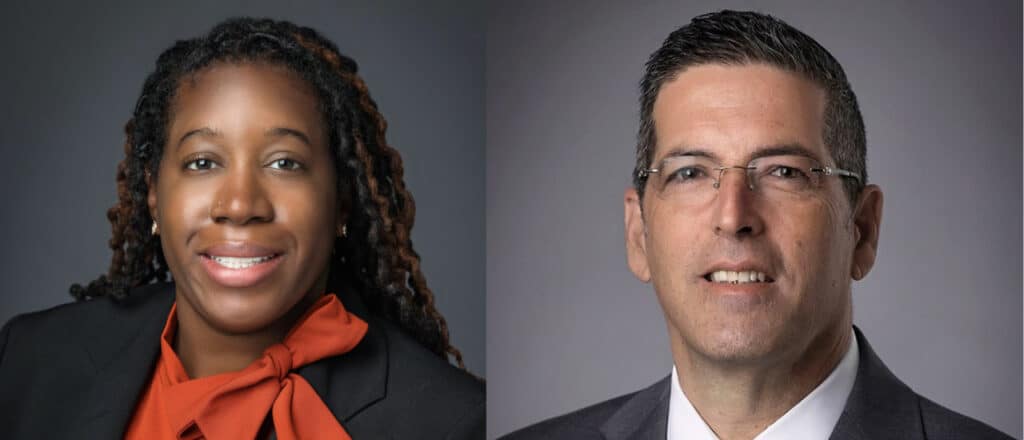Maisha Moore and Eric Sheffler have deep ties to the Atlantic City community and have worked to address food insecurity through their roles at the Casino Reinvestment Development Authority (CRDA).
Eric is a lifelong resident of Atlantic County – which has one of the highest rates of food insecurity in New Jersey – and has a background in law enforcement, serving as a police officer in Atlantic City before becoming the county sheriff. Maisha was born and raised in Atlantic County after her parents moved from Princeton to work in one of the casinos. She has worked in government for years and now serves as CRDA’s Deputy Executive Director.
Both are dedicated to helping create long-term change in Atlantic City and across the county.
“We need to create a system where food access isn’t a privilege but a guarantee,” they agreed. “Education on food storage, nutrition, and even growing food should be a core part of our efforts.”
CRDA and the FoodBank first joined forces during the COVID-19 pandemic, when mass layoffs in the hospitality industry, particularly among casino workers, created a food insecurity crisis in Atlantic City. The organizations partnered to host biweekly large-scale emergency food distributions at Bader Field. Eric led logistics, gathering supplies and assisting with set-up, and CRDA also played a pivotal role by providing CFBNJ with grants to fund these efforts.
“We invested over $1.5 million in food security initiatives because we knew that even as things improved, food insecurity wasn’t going away overnight,” Maisha said.
Maisha and Eric came away from these distributions with powerful stories of the FoodBank’s impact that they’ll remember for the rest of their lives.
Eric recalls meeting a senior who was unable to afford both her medication and food: “She was paying nearly $1,000 a month for medication. We got that cost down below $100. It was a true partnership between us and the FoodBank — not just providing food but also addressing larger systemic issues.”
“A girl I met at a distribution was staying over at a friend’s house in a big, beautiful neighborhood,” Maisha shared. “After two days, she called home saying, ‘Dad, come get me. They have no food in the house.’ It’s a reminder that food insecurity isn’t always visible.”
Both experiences speak to how often working families face difficult choices between food and other necessities, like housing and healthcare. But Maisha and Eric envision a future where these impossible decisions are a thing of the past. They see collaboration, like CRDA’s partnership with CFBNJ, as key to making meaningful progress.
“We are much more alike than we are different, and food insecurity affects everyone. The more we work together, the closer we’ll get to a future where no one goes hungry,” they said.


